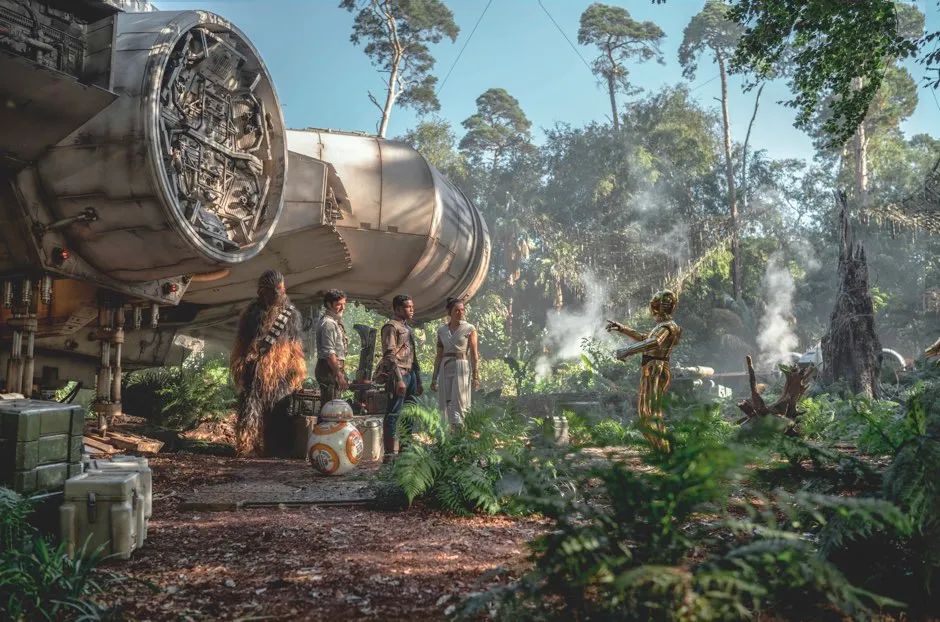Nostalgia is big business these days. With sequels, prequels and spin-offs hitting our screens, it seems that film and TV studios know exactly which heart strings to tug at to get us to spend our money.
Just take a look at Star Wars spin-off The Mandalorian, which premiered on Disney+ in November 2019. Analytics firms have described The Mandalorian as the most in-demand series in the world. So why does nostalgia hold so much power over us?
Do you remember when…?
Feelings of nostalgia play an important role in creating and maintaining relationships. Many of us know what it is like to bond over a shared reminiscence for music, comedy or even television adverts.
What is particularly striking is how positive those feelings and memories tend to be. Studies show that when younger and older adults are asked to remember past experiences, the older adults tend to recall the positive events, like holidays and special occasions.
Read more about Star Wars:
- Star Wars: a distinctly British Hollywood blockbuster
- Star Wars' last Jedi may use the Force of quantum science
- There’s always a bigger fish: Animals named after Star Wars creatures and characters
- What is a parsec?
Younger people, though they can recall positive events, are far more likely to remember negative things, such as accidents and stressful events. Scientists believe that this shift reflects a change in goals.
Young adults are strongly oriented towards exploration and learning, which necessitates reflecting on the mistakes we have made. But as we grow older and the time ahead of us shrinks, we become more present and focus instead on savouring the good things.
Research also shows that we share a tendency to prefer the music, books, films and famous people that we first encountered during our teenage years. A popular explanation for this so-called ‘reminiscence bump’ is that these cultural experiences become intrinsically linked to important personal memories, like leaving home, that relate to our sense of self and our relationships with others.
People seem to be particularly attached to songs and films that remind them of a significant person, or of a key turning point in their life. According to Dr Petr Janata from the University of California, this is because lifetime memories are actively linked with music by the ‘medial prefrontal cortex’, an area of the brain that enables us to recognise experiences that are meaningful and relevant.
Is nostalgia good or bad?
Over the years, there have been many different views on the benefits and pitfalls of nostalgia. In fact, in its earliest descriptions dating back to the 17th Century, nostalgia was seen as a medical condition that indicated brain dysfunction.
Over time, the definition has taken on a different meaning, depending on the individual and the context in which it occurs. For example, some people are shown to be more prone to nostalgia and it is these individuals that benefit the most, showing greater optimism and self-esteem after they have been encouraged to reflect on past events.
Read more fromReality Check:
- Badger culls: do they stop the spread of bovine TB?
- Food supplements: Should we all be taking vitamin D?
So, should we put off going to see The Rise of Skywalker? Is there a danger to being too nostalgic? For a small number of people, the answer is probably yes.
One study showed that although inducing nostalgia in the lab has a positive effect on most people, it can lead to distress in those who are prone to worrying and rumination. This seems to be because being nostalgic heightens their sense of loss of the past. For these individuals, activities and therapies that focus on the present may be more valuable.

By and large, though, nostalgia has been found to have incredibly positive effects. It boosts motivation, promotes more cooperative behaviour, improves mental health, encourages optimism, reduces loneliness and raises self-esteem.
Contradictory to expectations, feeling nostalgic can enhance our openness to new experiences and foster creativity. It has even been shown that inducing a pleasant nostalgia can make the weather seem less gloomy.
So, next time the skies cloud over or you find yourself feeling a bit down, invite a friend over and pull out the DVD of Star Wars: A New Hope. A little trip down memory lane can do us the world of good.
Visit the BBC's Reality Check website at bit.ly/reality_check_ or follow them on Twitter@BBCRealityCheck
